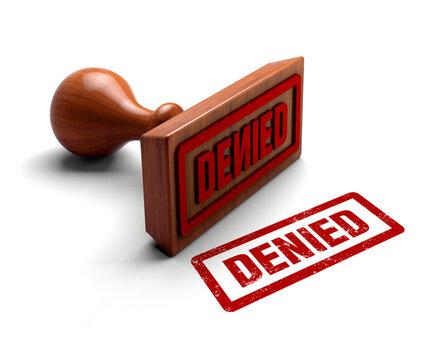Denied, now made aware.

Insurance companies operate with a chilling efficiency. They don’t skulk in the shadows or hide behind locked doors. They work in the open, in glass towers and boardrooms, dressed in fine suits with polished smiles. They exploit your fear, your vulnerability, and your inevitable misfortune, and they do it all with a handshake and a reassuring voice. They are predators wrapped in respectability, feeding off the very people they claim to protect.
A serial predator stalks a single victim at a time. Society hunts them, locks them away, and labels them a monster. But insurance companies? They are far more dangerous. They don't need weapons. They don’t need to run or hide. They use contracts, clauses, and fine print to trap millions at once. They bleed you dry financially and emotionally, and society applauds them for their ‘legitimate business practices.’ A predator leaves behind a trail of bodies. Insurance companies leave behind broken lives, shattered dreams, and bankrupted futures.
They call themselves protectors, guardians of stability. But they are merchants of fear, architects of exploitation. They know your darkest anxieties — fear of illness, of disaster, of losing everything. They whisper in your ear, ‘Without us, you’ll be ruined.’ So you pay. Month after month, you hand over your hard-earned money, believing that when disaster strikes, they will be there to catch you.
But when that moment comes — when you are on your knees, desperate for help — they show you their true face. They point to the fine print. The exclusions. The conditions buried on page 47 of a document you didn’t understand. ‘We can’t help you,’ they say, feigning sympathy while they slam the door on your hope. They leave you to fall, while their hands remain deep in your pockets.
And what do they make? What do they build? Nothing. They contribute nothing tangible, nothing real. They don’t create products, innovate technologies, or build communities. Their business is extracting wealth from fear. They exist not to protect, but to profit. They siphon money from the vulnerable and funnel it upward, feeding their empires and padding their bottom lines. While families drown in debt, they celebrate record profits. While lives fall apart, they hand out bonuses.
A serial predator works in the dark, forever looking over their shoulder. Insurance companies do it in the light, shielded by laws and regulations that protect them, not you. They don’t fear justice. They’ve built the system in their favor, layer by layer, clause by clause. They’ve perfected the art of legally sanctioned exploitation.
But here’s the proof of their irrelevance, the proof of how we can do without them: when disaster strikes, when someone’s child falls ill, when a family loses everything in a fire or flood — where do people turn? Not to their insurance policies. Not to the cold, calculating corporation that promised to be their safety net. No, they turn to each other.
They launch a GoFundMe, a crowdfunding campaign, and something remarkable happens. Friends, neighbors, strangers — people with no obligation, no contracts — come together and give. They give out of compassion, not profit. They give because they see a need and choose to help. In hours, in minutes, thousands of dollars are raised. Lives are rebuilt, surgeries are paid for, homes are restored. No loopholes. No delays. Just help, immediate and human.
That is a real safety net. A net woven from empathy, not fine print. It’s proof that protection doesn’t need a contract. Security doesn’t need a corporation. We can rely on each other. We can build systems of mutual aid, community support, and charity that work faster, better, and with more heart than any insurance company ever could.
Insurance companies despise this kind of generosity because it exposes the lie. It shows that their business model is a con, a system designed to hoard wealth rather than distribute it. They don’t want you to see that people are capable of taking care of each other without middlemen, without bureaucrats skimming off the top. Because once you see the truth, once you realize you don’t need them, their power crumbles.
Insurance companies get away with what predators can’t. They exploit, they deceive, they abandon — and they do it under the guise of legitimacy. But no amount of legality changes the reality: they are parasites. They are predators dressed in pinstripes and boardroom smiles. And like all predators, their power only lasts as long as the prey believes in it.
One day, people will wake up. They will see the trap for what it is. They will stop feeding the beast, stop buying the lie. And when that day comes, the whole facade will shatter. Because predators only rule the jungle until the prey decides it’s time to fight back.


